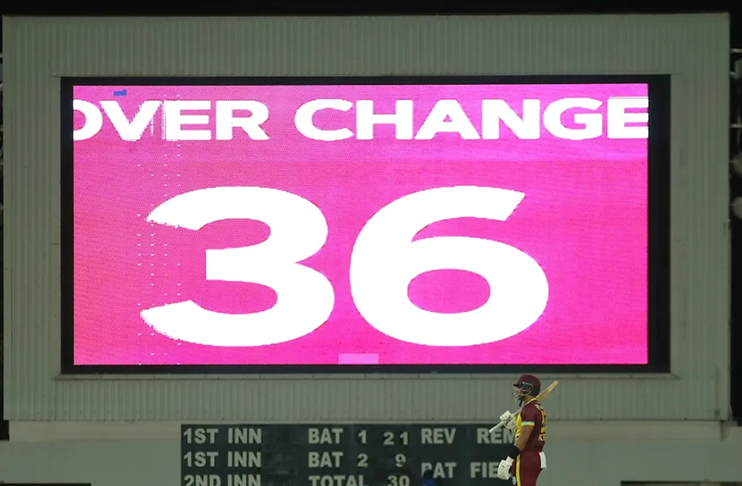Advertisement
Advertisement

The International Cricket Council (ICC) has announced seven major changes to playing conditions that will affect all formats of cricket, including the stop clock rules and revised DRS procedures.
While some of the playing conditions have already been implemented in the new cycle of the World Test Championship (WTC), certain rules related to the 50-over format will take effect from July 2.
Stop Clock Rule
The global cricket governing body has already implemented the law of the stop clock in ODIs last year, but now, due to the longstanding problem of slow over rates in the longest form of Test cricket, this rule is set to take place in Test cricket as well.
According to the rule, the fielding side must start an over within a minute of the previous one. In not doing so, the umpires will give the fielding side two warnings before imposing a five-run penalty on the bowling team.
The warnings will be reset to zero after each set of 80 overs. Furthermore, the clock will be counted upwards from nought to 60, a rule that is already enforced in the new WTC cycle.
Ball Change and Saliva Rule
With the ban on the use of saliva to be continued, the ICC has permitted umpires to have the right to not change the ball as soon as saliva is evident on it. The change is enforced to prevent teams from deliberately using saliva to alter the ball’s trajectory.
Nonetheless, the umpires will only change the ball if its shape has changed significantly, for instance, the ball is too wet or shinier. Additionally, if the ball moves a lot after the umpires have stated that the use of saliva has not altered its condition, it cannot be replaced. Hence, the batting team will be awarded five runs.
DRS Procedure After Caught Out
Earlier, the procedure of the DRS protocol after being caught behind the wicket was similar to that of a batter being given out if a ball brushed his pad without any contact with the willow, and he asked for a review. If the batter was not out while the ball, then the default mode of lbw dimissal was not out in DRS on umpires call.
In the update rule, if the ball tracking shows ‘Umpire’s call’ following the caught behind decision overturned, the ball tracking gives an ‘umpire’s call, then the batter will be deemed out.
No Ball and Catch Fairness Review
Under the old rules, when no ball was called, both on-field officials’ uncertainty led to it being referred to the TV umpire. The TV umpire then tells the on-field official that a no-ball has been called, and he didn’t have to check the catch.
Now, with the new rules, the third umpire will check the fairness of the catch. If the catch is taken cleanly, the batting team gets one extra run for the no-ball, and if the ball is not in safe hands, then the batting team will get the extra runs that the batter scores.
Deliberate Short Run and Penalty
If a batter is caught taking a short run, the batting team faces a five-run penalty. Under the updated rules, if a batter deliberately fails to make their ground to claim an extra run, the umpires will allow the fielding team to choose which batter will be on strike, and the five-run penalty still applies.
Rule 18.5.1 of playing conditions states that a deliberate short run occurs when batters attempt to appear as if they’ve run more than one run while one batter intentionally does not complete their ground. Batters may abort a run if the umpire believes there was no intent to deceive or score.
Players Full-Time Replacement In Domestic Cricket
The ICC has urged the boards to cover the loss of a player who has suffered a serious external injury in domestic first-class matches. The governing body has stated that the player should be a like-for-like replacement, similar to a concussion substitute.
However, the trial basis rule, enforced by individual boards, requires that injuries be completely verified by officials, and the rule will not be implemented for injuries such as hamstring pulls or minor strains.
Review Order in Combined Appeals
The review rules will now follow a chronological order in instances involving multiple types of appeals, such as lbw and run out. Earlier, umpire reviews had priority over player reviews, in which the TV umpire would first review the umpire’s decision and then examine the player’s reviews.
Now, according to updated rule 3.9, if there is an appeal for lbw and run-out, the TV umpire will first examine the lbw appeal, as it occurred first. If the batter is out, the ball will be called dead at that point, so there is no need to check the second review.
READ: Jofra Archer named in England squad for second Test against India